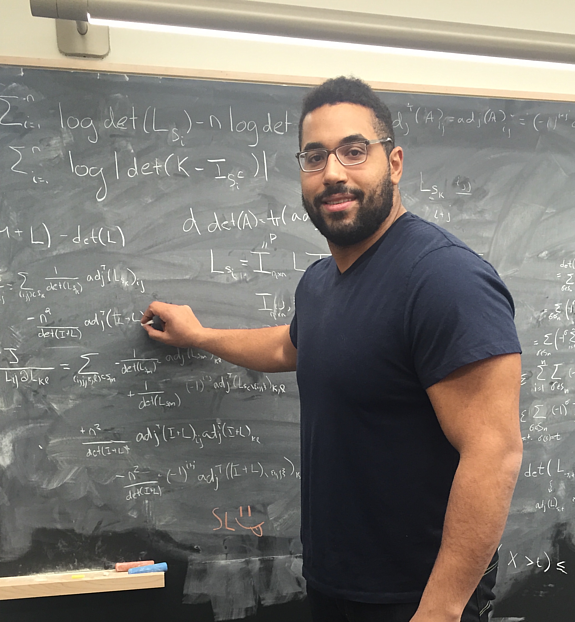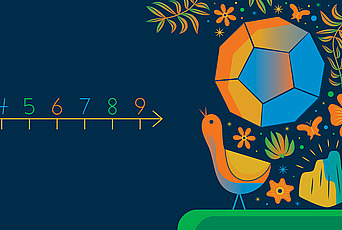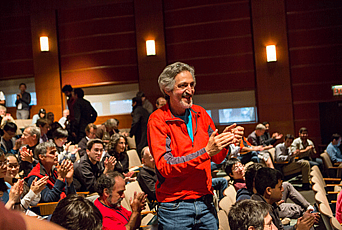John Urschel, Member in the School of Mathematics, is an applied mathematician/theoretical computer scientist as well as a former professional football player, who spent three seasons with the Baltimore Ravens. Urschel retired from the NFL in 2017, and went on to complete his Ph.D. at MIT in 2021.
His interests include linear algebra, numerical analysis, and graph theory, with research topics ranging from eigenvalue algorithms and spectral graph theory to determinantal point processes. This Q&A has been edited for length and clarity.
What I’ve noticed is that the biggest issues students can face isn’t a lack of preparation or ability, but a lack of confidence or sense of belonging. I think if each of us constantly asked the question, “What can I do to make all of the people around me (students/mentees/colleagues) feel welcome and valued?”...that’s already a big step to making academia more inclusive.
How do you describe your work to friends and family?
I often tell my non-scientific friends and family that I work with arrays/spreadsheets of numbers and study interesting properties about them. When I’m talking to scientists (or someone who’s studied matrices), I talk about methods for solving linear systems and eigenvalue problems, and theoretical questions involving graphs and matrices.
What question(s) within your field do you most want to answer and why?
This is a tough question to answer. I find that I’m happiest when I’m working on problems that are fundamentally interesting and exciting to me, independent of application or perceived prestige. I’m not sure this is the best approach, but it’s definitely the most fulfilling one for me. I have a couple of questions, mostly related to things I studied during my Ph.D., that I want to answer. There’s a few theoretical questions involving eigenvalues of matrices that I want to pin down, and I’m also looking into some deep questions involving Gaussian elimination (a very old and very popular method for solving a linear system). I feel like it’s important to take the things you’ve learned and done, and always try to improve on them. With that said, I’m looking forward to learning about new things while I’m here and also working on some problems I wouldn’t have otherwise thought about.
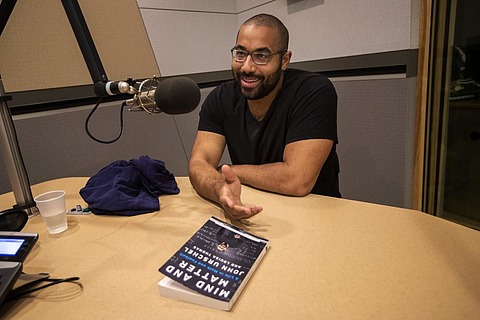
Who or what has had an outsized influence on you in your academic career?
I think my experiences with math have been unique in some way. My first experience with higher level math was when I was a little kid running around in Chapters (a Canadian bookstore), reading random books while my father was doing work in the cafe. I picked up a book on Algebra I, and was fascinated by the concept of letters as numbers and solving pairs of linear equations in two variables. Looking back, I think the method by which I learned math had a huge impact on my career. I learned almost everything I knew about math as a kid from books. This persisted almost all the way through college, and it led to an opinion of math that was much different from some of my friends. My ability to learn math or my experience in math wasn’t at all shaped by class lecture or fellow students; I did all my problem sets alone and didn’t spend much time with other math majors. In many ways, that made my experience with math much purer and more personal. Of course, since then, I’ve learned the importance of learning from not just what others write, but what they say in lecture and talks, and also the importance of collaboration. Still, I think my personal, solitary experiences with math earlier on had a lot of benefits. I never doubted myself or my ability to do math, and I never got discouraged or questioned my place in the mathematics community. I can’t say these things never happen to me now, but I’m in a much more mature place to deal with these doubts.
What is one of your most memorable moments as an academic?
I think getting my Ph.D. in math from MIT has to be at the top of the list. When I was an undergraduate at Penn State, I switched from engineering to a math major because I loved my math classes so much more. At the time, I didn’t know what I could do with math, or what I should aspire towards. But the more time I spent in math, the more I realized just how much I loved the subject, and that I wanted to be a researcher. Being a Ph.D. student at MIT was a dream come true. It was a great environment, full of so many brilliant people who just love math. My five years there were some of the best times of my life. With that said, I’m really looking forward to being at IAS this year and doing good work around some really great people.
Why IAS?
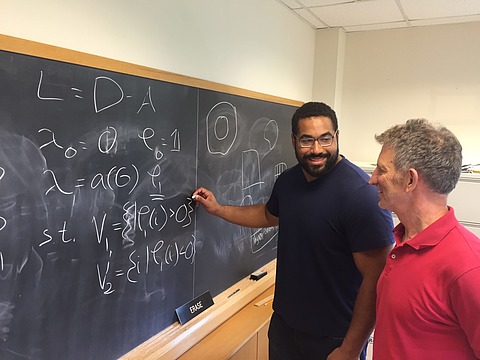
For me specifically, I think the prospect of working with Peter Sarnak was not something I was willing to pass up. He's a brilliant mathematician, we have a lot of shared interests, and I’m looking forward to having lots of interesting mathematical conversations with him.
In general, I think IAS is a great choice for any academic. I've only been here two weeks, and it's already clear to me how great of an environment there is here at the Institute. I live on the Institute grounds in a beautiful wooded area. I’m a one minute walk from the preschool and the gym, a four minute walk from my office, and a six minute walk from the cafeteria. Every thing here is close, convenient, and set up so that everyone who comes here can focus on what they do best, without worrying about other things. I can already tell this is going to be a very productive year for me.
How might the reopening of campus (and society at large) influence you and your work?
I’m not sure. I’m not sure how much I’ll travel (academically) once society fully reopens. If anything, I think I’ve learned that I’m capable of meaningful and interesting collaboration even when working remotely. And I’ve enjoyed the extra time that being at home has given me with my daughter.
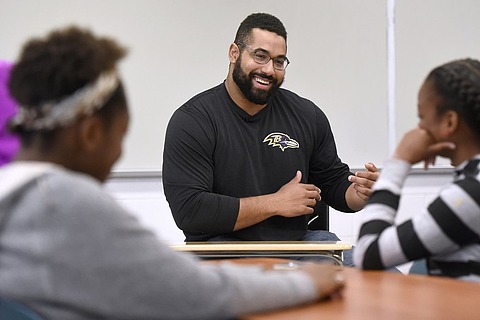
How can we make academia more inclusive?
I don’t have a great answer to this question, but I find myself thinking a lot about my personal role in this. I try to do my best to make sure that when I teach, I’m serving all my students and ensuring that their academic needs are being met. I’ve found that in mentorship, I’m disproportionately paired with/contacted by students from underrepresented groups, which I guess isn’t so surprising. What I’ve noticed is that the biggest issues students can face isn’t a lack of preparation or ability, but a lack of confidence or sense of belonging. I think if each of us constantly asked the question, “What can I do to make all of the people around me (students/mentees/colleagues) feel welcome and valued?”, act on those things, and listen to feedback about ways we can do better, that’s already a big step to making academia more inclusive.
What other activities or pastimes do you enjoy?
When I’m not doing math, I like doing a bunch of different things. I spend a lot of time playing with or teaching my daughter. I used to play professional football, and I still like playing sports and exercising, time permitting. I also like playing chess, though I’m a complete amateur.
